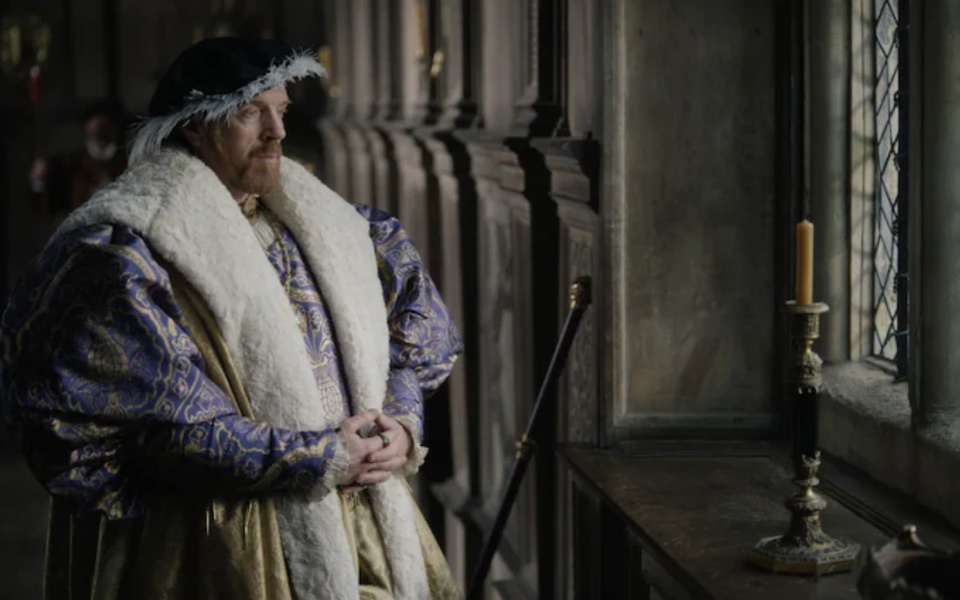– Damian Lewis Has Been
a Superlative Henry VIII –
by Chris Bennion | The Telegraph | December 15, 2024
Five out of Five Stars
A recurring motif of Wolf Hall: The Mirror and the Light (BBC One) has been the echoes of the past. Thomas Cromwell (Mark Rylance) throughout this second series, based on the third of Hilary Mantel’s Wolf Hall novels, has been plagued with unwelcome memories – of Cardinal Wolsey, of Anne Boleyn, of Wolsey’s daughter Dorothea, of Jane Seymour. This final instalment was the most resounding echo of all, mirroring in so many details the last episode of the first series, when Cromwell accompanied Anne on a rowing boat to the Tower of London, where she was relieved of her head.
You would accuse director Peter Kosminsky and writer Peter Straughan of heavy-handedness, were it not for the fact that the ironies were so perfect. As Cromwell bobbed upon the Thames, accused of treason, who else could he have been thinking about but Anne? He had arranged her marriage and orchestrated her death. If this finale lacked a little power compared to the first, it’s because Cromwell’s sadness at his own death could not compare to his sadness at Anne’s.
The episode was an elegant chamber piece, mainly revolving around Cromwell’s cross-examinations at the hands of men he had helped, hindered, flattered, scorned, insulted and bettered. Chief among them the Bishop of Winchester, Stephen Gardiner, brought back from Europe by the king in a deliberate broadside against Cromwell. For whatever reason Alex Jennings replaced Mark Gatiss as Gardiner for this series, we got to thank our lucky stars for it here. Gatiss is an enjoyable performer, but Jennings is a powerhouse and he brought depth to the occasionally panto-villain Gardiner.

Timothy Spall was allowed to chomp and snarl deliciously in these scenes, as his brutish Duke of Norfolk got to take his revenge on the ignoble Cromwell. It was almost agony to watch a smirking, defiant Cromwell take on his interrogators, skillfully pulling apart their trumped-up accusations around purple doublets and rings with magical powers, making them look foolish, corrupt and stupid. But it was because Cromwell always made them feel foolish, corrupt and stupid that so many of his peers delighted in bringing him down. Rylance pitched Cromwell’s brilliance and vanity to perfection.

It was a deliberately claustrophobic episode – once Cromwell was shut up in the Tower, we didn’t see the sky until he did, on his way to the chopping block – and we were afforded the usual lingering views of Rylance’s craggy, drawn, impassive face. I know his wrinkles better than my own. Damian Lewis, who has been a superlative Henry VIII, was allowed one beautiful moment, railing rheumatically against Cromwell’s ability to “keep him ever young”. The whole episode kept reminding me – more echoes – of the moment when Malcolm Tucker is defenestrated in The Thick of It. Cromwell and Tucker share a huge amount of DNA.
When Cromwell’s end came, we saw not a drop of blood, nor the swing of an axe, but it was grisly nonetheless. Mantel, Kosminsky, Straughan and Rylance (and indeed everyone else involved) deserve every plaudit they have received. These 12 episodes are one of British television’s towering achievements.
Read the rest of the original article at The Telegraph
